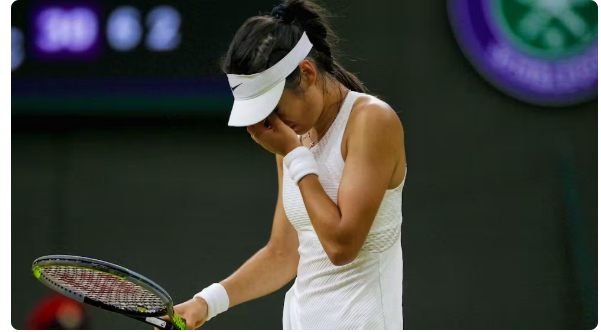
The glamorous world of professional tennis is increasingly marred by a dark reality: stalking and harassment targeting its star players. Recent incidents involving prominent athletes like Emma Raducanu and Eva Lys have brought the issue into sharp focus, raising serious concerns about player safety and the need for more robust protective measures.
The immense popularity of tennis, while bringing adoration, also casts a long shadow, particularly for top-ranked players like Germany’s Eva Lys. The 23-year-old has experienced firsthand the drastic downsides of fame, facing a surge in online hate and intrusive harassment. Speaking at the Stuttgart tournament, Lys acknowledged the disturbing correlation between increased attention and malicious intent: “As a result, of course, a lot more people are taking notice, which unfortunately gives them very, very bad ideas.” She emphasized the urgency of addressing these sensitive topics openly, highlighting the current inadequacy of effective countermeasures.
While online abuse has long been a concern in tennis, recent stalking incidents involving former world number one Iga Swiatek and former US Open champion Emma Raducanu have reignited the debate with alarming intensity. Raducanu’s ordeal in Dubai in mid-February, where she was so fearful of a stalker that she sought refuge behind the umpire’s chair and was reduced to tears, sent shockwaves through the tennis community.
Recounting her terrifying experience, Raducanu revealed, “I literally couldn’t see the ball because of the tears. I could hardly breathe.” The 2021 US Open winner has since heightened her security measures, shaken by the realization that the individual had followed her to tournaments in Singapore, Abu Dhabi, and Doha. The WTA, the governing body for women’s tennis, responded by temporarily banning the stalker from all its events.
Just weeks later, the issue resurfaced when the BBC reported that Poland’s world number two, Iga Swiatek, was targeted by an aggressive and taunting man during a training session in Miami. While Swiatek, speaking at the Porsche Grand Prix in Stuttgart, refrained from labeling the incident a “threat,” she acknowledged that a fan had intentionally tried to disrupt her. She expressed gratitude for the swift action taken by the WTA and the support of her team, which made her feel safe.
However, Swiatek’s management, as reported by the BBC, painted a more concerning picture, noting that the Miami incident appeared to be “a direct transition from verbal online aggression to a threat in the real world.” This highlights the dangerous escalation that can occur when online harassment spills over into physical encounters.
The Stuttgart WTA tournament, a prestigious event attracting top talent, maintains that security is a high priority. However, in the wake of these recent incidents, there has been no increase in security personnel at match and training courts. Anke Huber, the tournament’s sporting director and a former player herself, acknowledged the persistent nature of such threats, stating, “I think there have always been cases like this and there probably always will be. I don’t think it can be completely prevented.” Huber poignantly recalled the horrific assassination attempt on then-world number one Monica Seles 32 years ago, underscoring the long history of security concerns in professional tennis and the progress made since.
According to the WTA, their approach to player safety involves collaboration with local authorities and security experts, in addition to the efforts of tournament organizers. Players are strongly encouraged to promptly report any suspicious information, regardless of its perceived significance.
Recognizing the growing threat of online abuse, the WTA, in collaboration with other organizations, implemented a technological solution at the beginning of last year. This system utilizes artificial intelligence to filter online messages, resulting in the detection of approximately 12,000 rule-breaking posts and comments between January and October 2024. Fifteen accounts identified as posing a significant threat were subsequently referred to national law enforcement agencies.
Eva Lys, who has previously made public the hateful messages she has received, welcomes the ability to report abusive comments and individuals. She emphasized the WTA’s commitment to ensuring the safety of its players: “The WTA will do everything in its power to ensure that this person no longer gets a ticket to the tennis tournaments. We definitely have to make a statement.”
The recent experiences of Raducanu, Swiatek, and Lys serve as stark reminders of the vulnerabilities faced by high-profile athletes in the digital age and beyond. The tennis world is increasingly recognizing the urgent need for more effective strategies and resources to protect its stars from the insidious threats of stalking and harassment, both online and in the physical realm.








